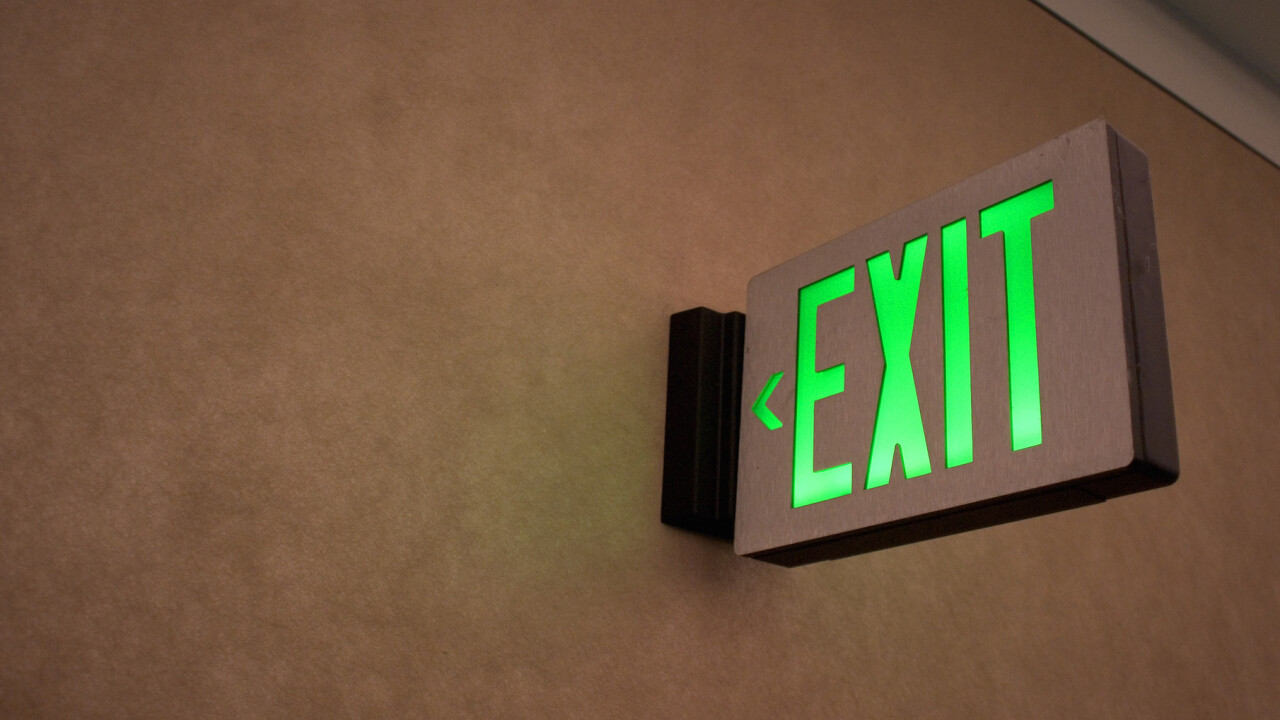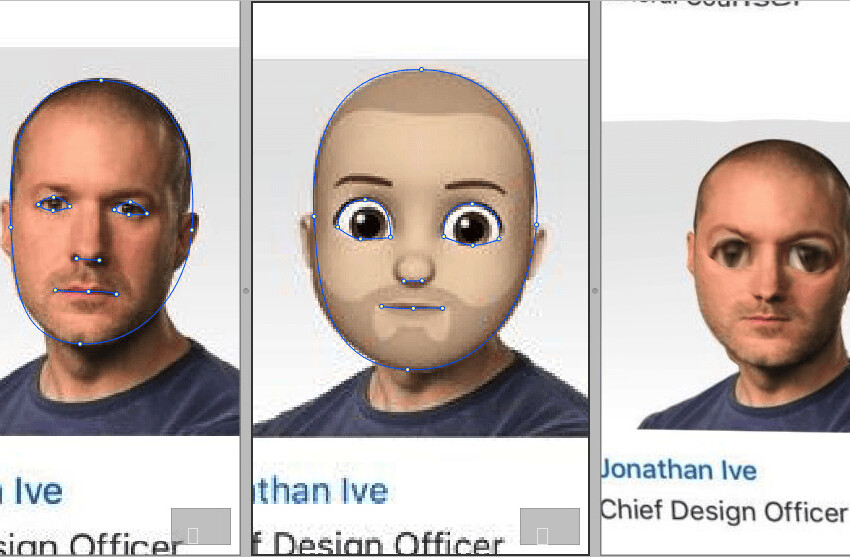
Andrea Ayres-Deets is the Lead Writer at Crew, an invite-only network connecting short-term software projects with handpicked developers and designers. Andrea writes about psychology, creativity, and business over on the Crew blog.
It’s 10:00 at night and I’m still thinking about work. Thinking about what I should change in an article, or what I should have done in previous articles.
My husband and I are sitting in the same room together, but I’m not really there. I’m half-a-mile away and it’s been like this for months.
I’ve done this with every job. I can’t leave work at work—I’ve never known how.
I love working hard—to feel my brain pulse with energy as I try to absorb as much information as humanly possible in a day.
I thought this made me better, that it made me different, but that’s not true at all.
How many of us are like this? You work until you physically, mentally, cannot work any longer? You think that this is just what you’re supposed to do, it’s what you have to do to succeed, right?
You can feel fulfilled both at work and at home without sacrificing one or the other.
Your work is never far away, it’s on your phone or computer—it’s reached a level of near omnipresence.
I always respond to work related issues because I tend to think this:
What if I need to be reached but I don’t have my phone, and then people think I don’t want to be reached, and then they will assume I don’t want to work, and then I will get fired.
I don’t want to get fired therefore I must respond.
If I unpack that even a little, tiny bit, I can begin to see the flaws in that logic. Will my employer really believe that I don’t want a job if I don’t respond when I’m not at work?
No.
Contrary to our incessant desire to always respond to e-mails and be ‘present’ 24/7, employers know this isn’t good for us. Hell, it’s not good for anyone.
Google is conducting a decade’s long study into the work lives of its employees in an effort to understand how people work better. What they discovered is that only 31% of their employees are able to leave work at work. That means 69% of people take their work home with them.
It’s actually more than that though, people are unable to distinguish between their work life and personal life.
Google’s Dublin office instituted a policy called “Google Goes Dark.” All of the employees in that office had to leave their work devices at work and off. This was done in an effort to draw clear boundaries between home life and work life.
There’s a perception that more work equals more productivity, but that’s not always the case.
Churn’em and burn’em doesn’t work
So you never take a sick day, or a vacation, and you are always ‘on-call.’ You also put in about 70 hours a week, so that will pay off eventually I’m sure…oh wait, except it doesn’t.
The Economist looked at the data from OECD (Organization for Economic Cooperation and Development) countries found that the more productive workers were actually those that spent less time in the office. Lifehacker takes it one stop further and puts an actual number on how many hours we work before we begin to see diminished results (hint: it’s about 30 hours).
Americans in particular rarely use their vacation, the average employee has about 9.2 days of unused vacation time. That’s up from 6.2 days in 2011.
To put this in a more global (yet still biased) perspective, the OECD Better Life Index tells us this:
The average person in the OECD works 1,776 hours a year and devotes 62% of the day, or close to 15 hours, to personal care (eating, sleeping, etc.) and leisure (socializing with friends and family, hobbies, games, computer and television use, etc.
If you subtract the 8 hours you are supposed to be sleeping each night, that leaves you with about 7 hours of time between leisure and eating. Now add in your unpaid work, like cleaning, and your commute and yeah, you see where I’m going with this.
Why is this bad?
Your body needs time to regenerate. I swear on the life of my cat you need those hours each and every day to process, recoup, and reorganize.
According to The New York Times:
“(…) During the day we move from a state of alertness progressively into physiological fatigue approximately every 90 minutes.”
We trick ourselves into avoiding this fatigue through coffee or just plain old ignoring what our bodies are telling us. You can’t fake out your body. Fatigue will catch up with you and when it does your work and personal life suffers.
When you think you are tricking your body you are actually only increasing the likelihood that you will suffer from burnout.
Work-life crossover
Those we are around the most cannot help but be impacted by our emotional and physical states—this is also known as crossover. What researchers have found is that you can negatively impact your family life by bringing work up with you. The upshot of this is that your family life can positively effect you work life…if you let it.
Family time and time spent with loved ones re-energizes us (usually). When you come home from work committed to actually spending time with your family you will provide your partner and loved with more resources. This makes them feel great, but in return it also ends up giving you more energy which positively effects your work. You owe this happy, wonderful feeling to oxytocin (aka “the hug hormone”/“love drug” and various other affectionate terms).
For a multitude of reasons (fear of losing our job, fear of being seen as lazy) many of us don’t take advantage of the benefits offered to us. Making some use of these benefits can make you feel more energized at work and at home. Remember that it is okay to ask for help, we all will need it at some point or another. Making use out of what benefits your employers offer can enable you to devote more energy to your home life.
Okay, great, leave work at work. Now how do you actually do that?
Mentally prepare for the end of the day
When you bring work home chances are that you are thinking about that e-mail you didn’t send or everything you have to do tomorrow, and the rest of the week. Before you leave work, clean up your desk.
A clutter free desk (inbox, computer etc.) helps to clear your mind. As my esteemed colleague Mikael Cho put it:
Physical clutter competes for your attention and because the brain has limited attentional resources, this competition can reduce and damage your productivity.
I clean up about a half-hour before I am done with work. The process of putting things away (physically or digitally) helps me mentally sort through my day. Organizing my desk helps me organize my mind. I work from home, so this is even more important for me. If I don’t clean up my work area, I am physically incapable of leaving work.
Another great way to begin winding down your workday is to make your to-do list for the next day. This will make sure that you start the next day with a plan and goals in mind—which means you’ll spend less time thinking about everything you have to do and more time actually doing it.
Write down your damned accomplishments
It’s so easy to get bogged down in everything you have to do that you forget everything you have already done. What good is working if you never take pride in those accomplishments that you put so much time and effort in? Before you end each day reassess your to-do list, look at what you something accomplished that day and feel good about it.
This is what mine looked like yesterday (sorry for the scribble):
Though it sounds super simple, taking pride in our accomplishments is not something most of us do. It can even seem a little bit silly at first. This isn’t about writing down things like: “I rule, I’m awesome, everyone can suck it.”
It’s a true reflection of a success you had that day. This helps to build your confidence and gives you momentum for the next work day.
Protect your time
If you spend time making yourself a schedule, carefully carving time out of your day to spend with family or on a certain task, protect that time. This serves as a reminder of when to start and stop tasks. Yes, this means being firm with yourself and keeping your time commitments.
It’s not enough to just take a mini-vacation here and there, and don’t even get me started on working vacations. You can’t make something a vacation if you attach the word “work” is attached to it. If you’ve decided to take time off let people at work know that they won’t be able to contact you. Stay true to your commitment to take time off.
This also applies for when you leave work each day. Try to actually say goodbye to people, let them know you are done for the day. This is physical manifestation of ending your work day helps your mind let go of the day as well.
Set a clear schedule, stick to that schedule, and if you can’t, amend that schedule.
If you don’t respect your personal time, no one else has reason to either.
I’ve been saying that I’m going to have a better work/life balance for years, but I’ve never done it. I just talk about it wistfully like it’s something I can look forward to in the future.
Well, that’s stupid.
There will always be more to do but overworking isn’t the solution. It just leaves you vulnerable in every other aspect of your life. Your health suffers, your personal relationships suffer, your sleep suffers, and then your work suffers.
Your employers and co-workers know you are not a machine (at least I hope they do), they aren’t machines either. They too have families and friends and commitments outside of the workplace. It’s okay to take care of yourself and do things just for you. Yes, you can let it go at the end of each day but first, you have to give yourself permission.
Get the TNW newsletter
Get the most important tech news in your inbox each week.







